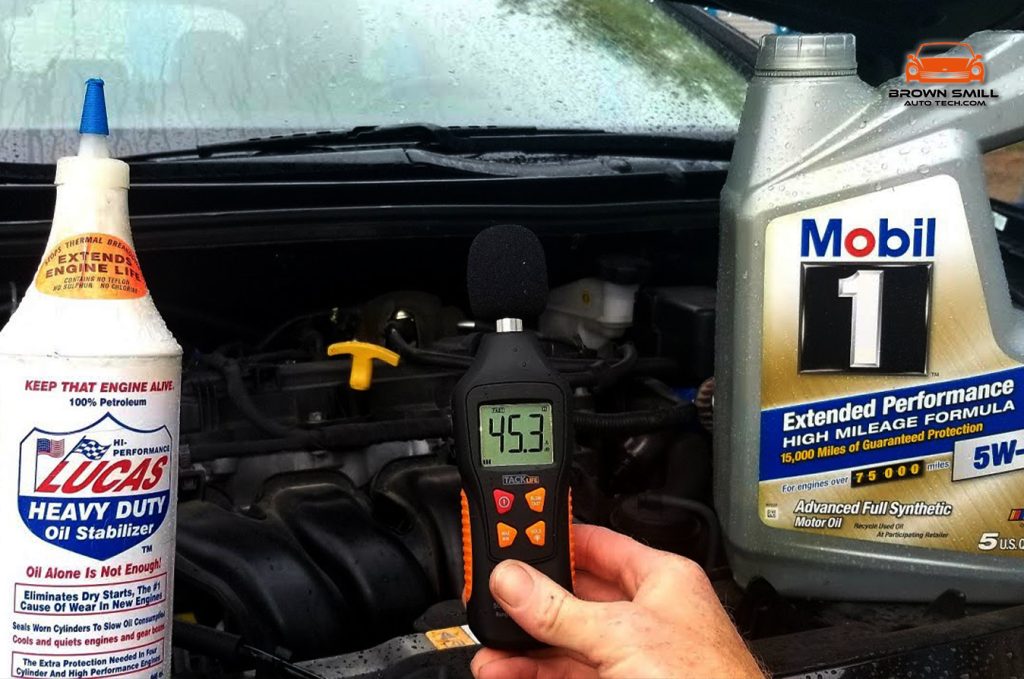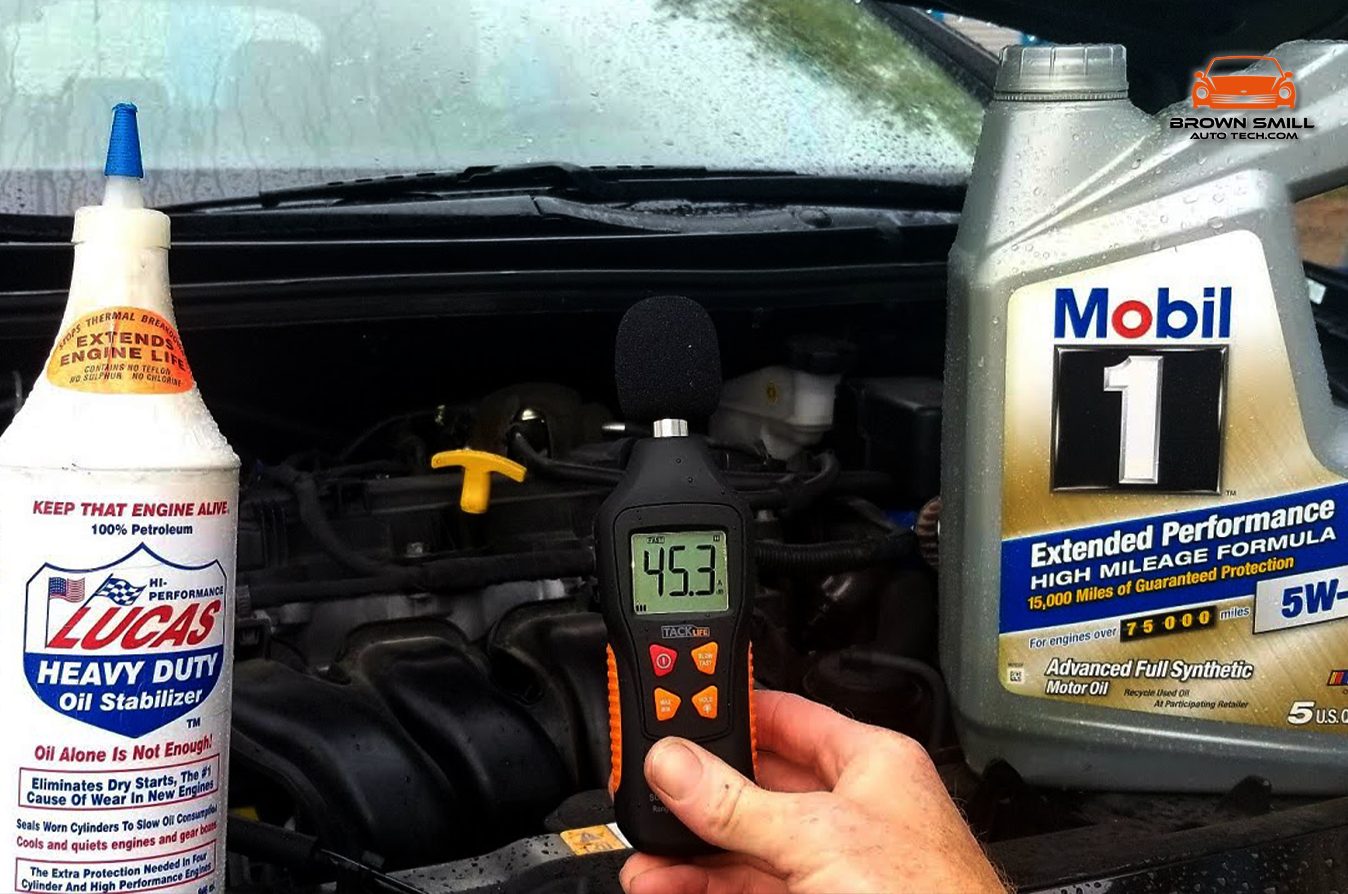Yes, thicker oil will stop lifter noise. The oil will provide a cushion for the lifters and prevent them from knocking against each other.
If your car’s engine is making a ticking noise, it could be due to a problem with the lifters. The lifters are responsible for opening and closing the valves in the engine, and they rely on oil pressure to function properly. If the oil pressure is too low, the lifters can start to make noise.
One way to fix this problem is to use thicker oil. Thicker oil will provide more pressure to the lifters, which should stop the noise. You may need to experiment with different oils until you find one that works for your car.
Be sure to consult your owner’s manual or a mechanic before switching oils, as using the wrong oil can cause other problems.
What Oil Will Quiet Noisy Lifters?
If your engine is making excessive noise, it could be due to faulty lifters. In order to quiet noisy lifters, you will need to use an oil with a high viscosity index. The higher the viscosity index, the thicker the oil and the less likely it is to leak out of small spaces.
You should also look for an oil that contains zinc and phosphorus additives, as these can help reduce wear on engine parts.
Is Thinner Or Thicker Oil Better for Lifter Tick?
Most people believe that thicker oil is better for lifter ticks, but this is not necessarily the case. In fact, thinner oil may be a better option in some situations. Here’s a look at the pros and cons of each type of oil:
Thicker oil has a higher viscosity, which means it is less likely to flow or leak out of areas where it is not supposed to. This can be beneficial for preventing lifter tick, as it helps keep the oil where it needs to be. Thicker oil also does a better job of lubricating moving parts and protecting them from wear and tear.
However, thicker oil can also have some drawbacks. It is more difficult to pump and may cause your engine to run hotter. Additionally, if you live in a cold climate, thick oil can make starting your car more difficult.
Thinner oil has a lower viscosity and flows more easily than thicker oil. This can make it easier to start your car in cold weather, as well as improve fuel economy slightly. However, thinner oil may not provide as much protection for your engine’s moving parts and may lead to increased wear and tear over time.
So, which type of oil is best for you? Ultimately, the decision comes down to personal preference and what works best for your particular situation.
Will Thicker Oil Get Rid of Lifter Tick?
No, thicker oil will not get rid of the lifter ticks. In fact, it may actually make the problem worse. The reason for this is that when an engine’s oil pressure is low, the oil will not be able to properly lubricate the moving parts in the engine.
This can cause increased friction and heat, which can lead to premature wear and tear on the engine components, including the lifters.
Will a Thicker Oil Stop Engine Knocking?
No, thicker oil will not stop the engine from knocking. In fact, it may actually make the problem worse. Engine knocking is caused by a build-up of heat and pressure in the cylinders.
When this happens, the air/fuel mixture can detonate prematurely, causing a knocking noise. Thicker oil can actually make this problem worse because it doesn’t flow as easily and can’t dissipate heat as well. This can lead to even higher temperatures and more pressure in the cylinders, making knocking more likely.
If you’re hearing engine knocking, the best thing to do is to have it checked out by a mechanic as soon as possible. They can diagnose the problem and recommend the best course of action to fix it.
Do Engine Oil Additives Really Fix Rod Knocks, Lifter Noise, Oil Burning or Leaks

Best Oil for Noisy Lifters
Lifters can be a source of engine noise, and they come in different types. Hydraulic, solid roller, and flat tappet lifters all have their pros and cons, but which is the best oil for noisy lifters? Hydraulic lifters are the most common type of lifter used in engines.
They rely on oil pressure to keep them adjusted, so they don’t require any adjustment themselves. Hydraulic lifters also tend to be quieter than other types of lifters. However, they can become noisy if the engine oil pressure is low or if there is debris in the oil.
Solid roller lifters are another type of lifter that can be used in engines. These lifters have bearings that roll on the camshaft lobe, which reduces friction and wear. Solid roller lifters are more durable than hydraulic lifters and can handle higher valve spring pressures.
However, they require more frequent adjustment and can be quite noisy when first started up after sitting for a while. Flat tappet lifters are similar to solid roller lifters, but they don’t have bearings. Instead, they ride directly on the camshaft lobe itself.
Flat tappet lifters are known for being very durable, but they can also be quite noisy due to the lack of bearings.
Best Additive to Quiet Engine Noise
If you’re looking for a way to quiet your engine noise, the best additive is definitely a silencer. A silencer is an acoustical treatment that absorbs and dissipates engine noise, making it significantly quieter. It’s easy to apply and can be found at most auto parts stores.
Will Synthetic Oil Quiet Noisy Lifters
Synthetic oil is often praised for its ability to quiet noisy lifters. But does it really work? Let’s take a look at the evidence.
There are many factors that can cause lifters to become noisy, including age, wear and tear, and inadequate lubrication. Synthetic oil can help reduce noise in all of these cases by providing a smoother, more consistent film of lubrication that helps protect metal surfaces from contact and friction. In addition, synthetic oil typically has additives that help to reduce wear and tear on engine parts.
This can further extend the life of your engine and help keep it running smoothly for longer. So if you’re looking for a way to quiet noisy lifters, synthetic oil is definitely worth considering. It may not be a cure-all, but it can certainly help improve the situation.
Will Thicker Oil Stop Timing Chain Noise
As anyone who has ever owned a car knows, timing chain noise can be incredibly frustrating. The good news is that there are a few things you can do to try and reduce or eliminate the noise. One option is to use thicker oil.
Thicker oil will help cushion the timing chain and components as they move, which can help reduce the amount of noise they produce. It’s important to make sure that you don’t go too thick with your oil, however, as this can cause other problems such as reduced fuel economy and increased wear on engine components. If you’re struggling with timing chain noise, give thicker oil a try and see if it makes a difference.
It’s an easy fix that could save you a lot of money and headaches in the long run!
Conclusion
Lifter noise is a common issue with many car owners, and there are a few ways to try and fix it. One method is to use thicker oil, as this can help to lubricate the lifters and quiet them down. This isn’t a guarantee though, and if your lifters are still noisy after changing the oil then you may need to take your car to a mechanic for further diagnosis.




Leave a Reply